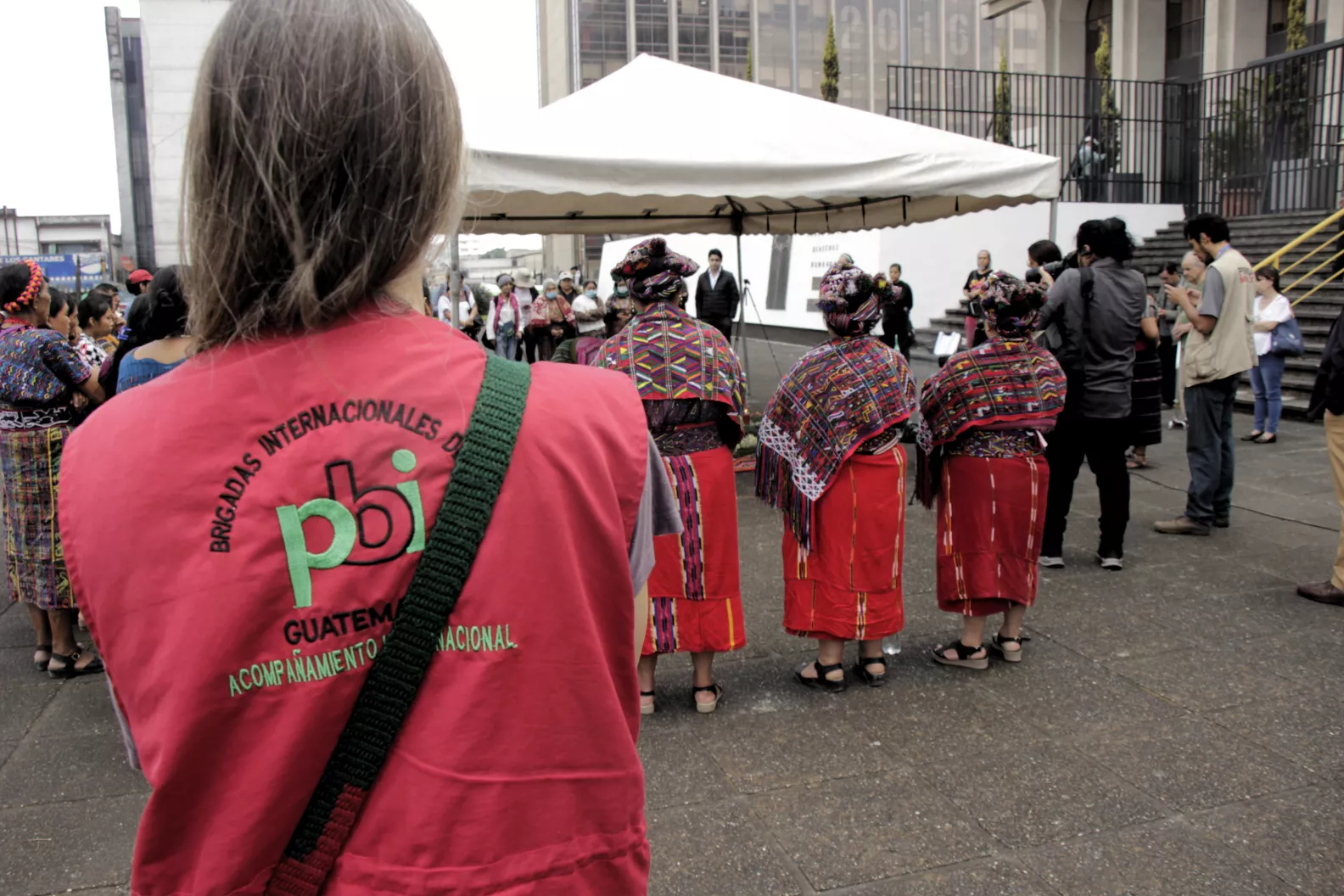
During the first half of 2023, Guatemalan courts continued to hear important cases of crimes perpetrated during the Internal Armed Conflict (CAI): Genocide Ixil case, under which crimes against humanity and genocide against the Ixil population during the government of Romeo Lucas García are being tried; Diario Militar case, which investigates crimes against humanity, kidnapping, forced disappearance, torture and execution of at least 183 people between 1983 and 1985, during the government of General Óscar Humberto Mejía Víctores; the Luz Leticia Hernández Agustín and Ana María López Rodríguez case, which judges the forced disappearance of the two students in 1982; the Dos Erres case, a community in the municipality of La Libertad, Petén, where between December 6 and 8, 1982, a Kaibil commando of the Guatemalan army perpetrated a massacre of more than 200 people.
PBI followed all of these cases through accompaniment of the Human Rights Law Firm (BDH), the Association of Relatives of the Detained and Disappeared of Guatemala (FAMDEGUA) and the family of the disappeared student Luz Leticia Hernández Agustín. Except in the case of Luz Leticia Hernández, which saw the leader of the commando that kidnapped the student charged and tried after 40 years, there were no significant advances in the rest of the cases and there were even setbacks. In fact, on 7 November, the High Risk Court E handed down a judgement of acquittal for the crimes of murder and kidnapping of the student. acquitted the three Kaibiles accused in the Dos Erres case of murder and crimes against humanity. This was the fourth trial against members of the Kaibil patrol that perpetrated the massacre. The previous trials led to convictions against six defendants. In the current trial, the court disqualified several of the experts and focused on technicalities and formalities to clear the three defendants. Survivors of the massacre appealed the sentence. It is worth remembering that the 2009 ruling of the Inter-American Court of Human Rights in the case of Dos Erres vs. the State of Guatemala, in article 235, stated that "in order to ensure effective access to justice for the victims, judges, as the directors of the process, must direct and guide the judicial procedure so as not to sacrifice justice and due legal process in favour of formalism and impunity".
Another sentence that has been questioned in transitional justice cases is that of the Rancho Bejuco massacre (Baja Verapaz), perpetrated on 29 July 1982 by a group of civil self-defence patrols (PAC) and military commissioners, in which 25 people lost their lives, including pregnant women and minors. pregnant women and minors. On 24 August this year, the High Risk Court D sentenced a retired military commander to 20 years' non-commutable imprisonment for crimes against the duties of humanity, but released two military commissioners and acquitted six former civilian patrol members, on the grounds that "they did not act of their own free will" but "were forced to". According to the lawyer for the victims' families, "this sentence has a bitter taste", because the judge ignored the fact that the "military commissioners and patrol members had assigned tasks and were under military command. There was evidence because it was shown that the patrol members stigmatised this community and were willing to participate in the armed forces". Therefore, he considers that "half justice" has been done. He assured that they will appeal.
In general, there has been a strategy of delaying judicial proceedings in Guatemala, with numerous suspensions and rescheduling of hearings. However, outside Guatemala, in Belgium, five Guatemalan military officers were sentenced to life imprisonment. The trial began on 4 December in the city of Leuven, Belgium, for the kidnapping, torture and murder of three Belgian missionaries between 1980 and 1982, during the IAC. The defendants were at the time officials and military officers of the de facto government of Fernando Romeo Lucas García (1978-1982). A popular jury found them guilty on 19 counts of crimes against humanity. None of them were present at the trial, for different reasons, from being fugitives from justice to already serving sentences in other cases of crimes committed during the CAI.
